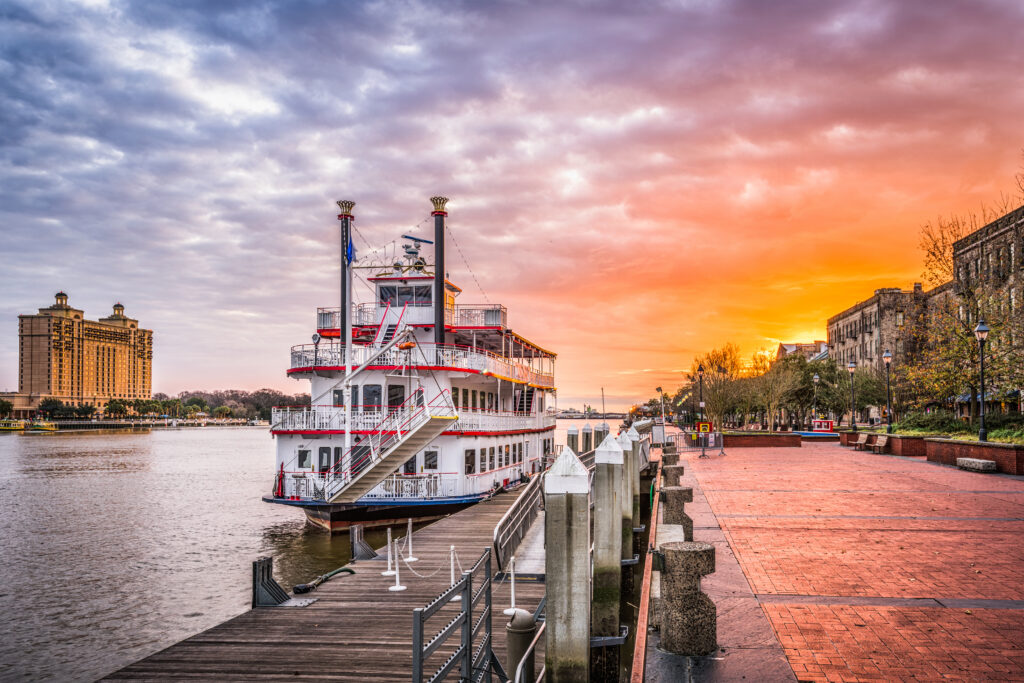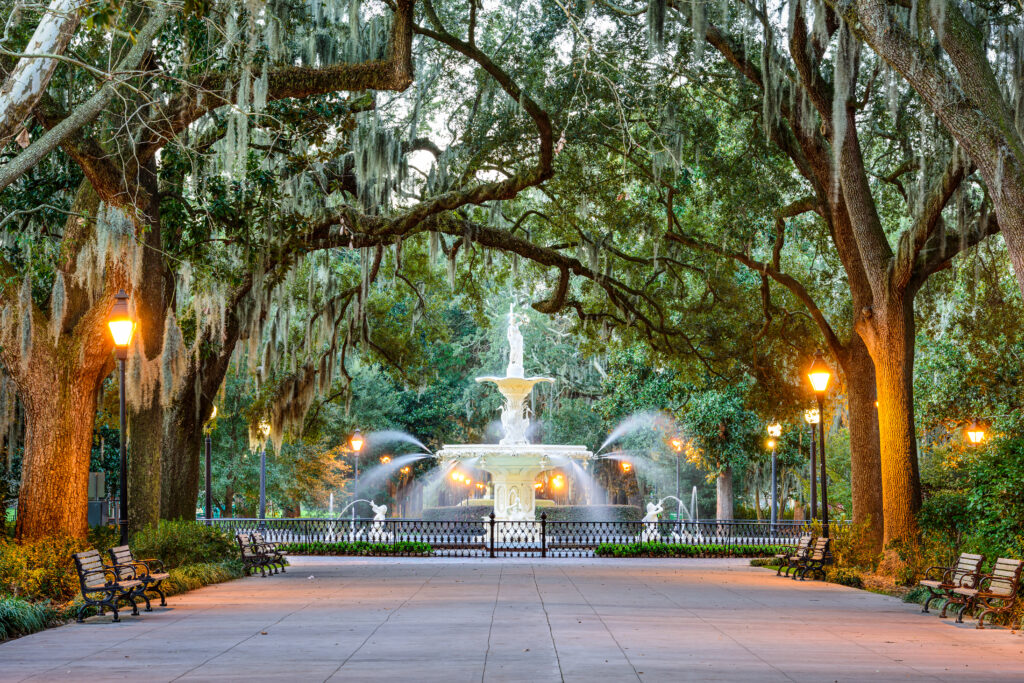Skilled Nursing in Savannah, Georgia: Search Near You, How to Pay, Licensing, Local Resources, Questions to Ask, Links and Resources
Skilled nursing facilities in Savannah, Georgia, provide comprehensive care and rehabilitation services for seniors who require medical attention and assistance with daily activities. Georgia, ranked 19th in the nation for assisted living, is committed to delivering high-quality care, and Savannah’s skilled nursing facilities uphold this standard by offering a supportive and nurturing environment. Residents benefit from personalized care plans, 24/7 medical supervision, and a range of therapies designed to enhance their quality of life and well-being.
Skilled Nursing Facility Communities near Savannah, Georgia
Preston Health Center
Hilton Head Island, South Carolina 29926-1365
Nhc Healthcare Bluffton
Bluffton, South Carolina 29909-5101
Life Care Center Of Hilton Head
Hilton Head, South Carolina 29926-2792
Fraser Health Care
Hilton Head Island, South Carolina 29928-4682
Broad Creek Care Center
Hilton Head Island, South Carolina 29928-3022
Sprenger Healthcare Of Bluffton
Bluffton, SC 29909
Life Care Center Of Hilton Head
Hilton Head Island, SC 29926
Bryan County Hlth & Rehab Ctr
Richmond Hill, GA 31324
Oceanside Care Center Llc
Tybee Island, GA 31328
Oaks Health Ctr At The Marshes Of Skidaway Island
Savannah, GA 31411

About Skilled Nursing in Savannah, GA
In Savannah, Georgia, skilled nursing is defined as a level of care provided in facilities that cater to individuals requiring medical attention and rehabilitation services on a short-term or long-term basis. Skilled nursing facilities offer round-the-clock supervision by licensed nurses, along with a team of healthcare professionals, to manage complex medical conditions, administer medications, and provide specialized treatments. Services include physical, occupational, and speech therapy, wound care, intravenous therapy, and post-surgical recovery support. These facilities are equipped to meet the needs of older adults who need a higher level of care, focusing on restoring health, maintaining function, and enhancing the overall quality of life for residents.
Considerations when looking for Senior housing in Savannah, GA
There are 8 skilled nursing facilities in Savannah, Georgia. The estimated population of Savannah is 147,748 with 14.7% of that number being those ages 65 and older. In Savannah, the summers are hot and oppressive, the winters are cold, and it is wet and partly cloudy year round. Over the course of the year, the temperature typically varies from 42°F to 91°F and is rarely below 29°F or above 96°F.
Cities near Savannah, GA
- Pooler, GA – Northwest, 10 miles
- Richmond Hill, GA – Southwest, 18 miles
- Garden City, GA – West, 7 miles
- Bluffton, SC – Northeast, 23 miles
- Hilton Head Island, SC – East, 31 miles
Pricing and How to Pay for Skilled Nursing
Paying for senior care depends on several factors. On average, residents can expect to pay $7,939 per month for skilled nursing services. These fees encompass personalized care, engaging activities, and comfortable accommodations, ensuring a fulfilling retirement experience. Keep in mind these costs may fluctuate depending on factors such as location and facility amenities.

Paying for Senior Living and Care will vary depending on a few factors. For instance, the level of care needed; the income and savings of the resident; the state and location of the community; or if the resident is a veteran. In the United States there are over 400 programs that may offer some monetary relief for senior care, but often the majority of costs are covered by private funds and family assistance. These funds come from our Federal, State, and Local Governments.
It is important to take your time when exploring payment and coverage options.
Private pay – YES:
- Many families pay for assisted living with private funds.
- Private pay can be a combination of retirement funds, personal savings, and pension payments.
- Family members may contribute funds to pay for assisted living or other senior housing and care.
Medicare -MAYBE:
Medicare will TYPICALLY cover Skilled Nursing (SNF) care ONLY under these factors:
- People 65 years and older and individuals with end stage renal disease are eligible for Medicare benefits, no matter their income.
- Coverage is meant for people in need of short-term care.
- The person has Medicare Part A, and has available days left in their benefit period. The person has a qualified hospital stay. (3 consecutive midnights or more)
- The individual must enter SNF within 30 days of leaving the hospital.
- The person’s doctor has ordered inpatient services at a skilled nursing facility.
- The individual must need and receive the skilled care daily. The care provided must be care that the person can only receive in a SNF.
- The person needs skilled services because of an ongoing condition or a new condition that started while in a SNF for treatment of an ongoing condition.
- The skilled services must be reasonable and necessary for the treatment of the condition.
- You must receive the care in a Medicare certified SNF.
Medicaid – MAYBE:
Medicaid can be a payer source if the patient needs both care and has a financial hardship based on the individual state criteria. Eligible participants include: low-income adults, elderly adults and people with disabilities. The program is funded jointly by each state and the federal government; and national guidelines are in place do decipher how states must spend Medicaid money, but with allowances toward the guidelines. Every state has their own individual Medicaid assistance program. Each state determines what levels of care will be covered by Medicaid, who is eligible, and how much the state will reimburse the care community.
- Skilled nursing falls under Medicaid’s Nursing Facility Services.
- People who are eligible for Medicaid must meet the state criteria for skilled nursing care.
- The state of residency must abide by federal law and regulations when setting their skilled nursing care requirements.
- The patient meets the state guidelines for income and asset limits.
If you are unsure whether you qualify for Medicaid, you should apply. You may be eligible depending on your household income, family size, age, disability and other factors.For a clearer understanding on coverage contact your State Health Insurance Assistance Program.
Long-term Care Insurance – MAYBE:
Long term care insurance is a great way to pay for assisted living, and planning ahead is important when considering how to pay for senior housing and care. Nearly 75% of people over the age of 65 will require long-term care services at some point, so naturally, buying into long-term care insurance when a person is in their 50s and 60s is the most common time to do so.
- Long-term care insurance helps cover the costs of chronic medical conditions.
- Individuals and couples with the ability to pay into long-term care insurance have the advantage of a head start in allocating funds for senior care.
Veteran Aid and Assistance – MAYBE:
This benefit is available to some military veterans and surviving spouses who live in an assisted living community and those who have in-home care.
- There are specific guidelines, but a veteran may qualify for as much as $2,050 each month.
- A veteran with a sick spouse may be eligible for $1,600 per month.
- If a veteran has passed, their surviving spouse can qualify for $1,300 per month.

Questions to ask a skilled nursing facility
- Is the facility licensed?
- Has the facility’s license ever been revoked?
- Is the facility Medicare/Medicaid certified?
- What types of insurance is accepted?
- Are all specific medical needs able to be met?
- What services are offered?
- What is the rate for basic care?
- Are any reviews available to be seen by the public?
- Are protocols in place to ensure healthy, balanced meals?
- What if an individual has specific dietary restrictions, can they be met at the facility?
Additional questions and inquiries to ask skilled nursing facilities
- What should a new resident (patient) bring with them?
- What is the difference between skilled nursing and assisted living?
- What happens in case of an emergency?
- Can the family pet visit the resident?
- What is the level of privacy?
- What are the available social activities?
- What is the hours for family visits?
- Can patients request special meals for dietary needs?
- Are skilled nursing facilities connected to hospitals?
- How big are the rooms?
- What are the training requirements of skilled nurses?
Local Hospitals and Healthcare Providers in Savannah, GA
Memorial Health University Medical Center
- Address: 4700 Waters Ave, Savannah, GA 31404
- Phone: (912) 350-8000
St. Joseph’s Hospital
- Address: 11705 Mercy Blvd, Savannah, GA 31419
- Phone: (912) 819-4100
Candler Hospital
- Address: 5353 Reynolds St, Savannah, GA 31405
- Phone: (912) 819-6000
Savannah VA Outpatient Clinic
- Address: 1170 Shawnee St, Savannah, GA 31419
- Phone: (912) 920-0214
Georgia Regional Hospital
- Address: 1915 Eisenhower Dr, Savannah, GA 31406
- Phone: (912) 356-2011
Resources and Links – Georgia
Georgia DHS Division of Aging Services – The Georgia Department of Human Services’ (DHS) Division of Aging Services (DAS) supports the larger goals of DHS by assisting older individuals, at-risk adults, persons with disabilities, their families, and caregivers to achieve safe, healthy, independent, and self-reliant lives.
Georgia Adult Protective Services – APS provides protection from exploitation abuse or neglect for individuals, 18 years and older with a disability and 65 and older regardless of a disability, living in the community who, because of physical or mental limitations, are unable to act in their best interest.
Georgia SHIP – Help Medicare and Medicaid beneficiaries sort through the complexities of Medicare and related-health insurance concerns.
Georgia Senior Legal Aid – Statewide legal services program for seniors sixty and over. Attorneys provide advice, brief services and referrals.
Capitol Ombudsman Program – A principal function of the Ombudsman Program is to investigate and work to resolve complaints made by or on behalf of long-term care residents.
Eldercare Locator This is a great resource to search for specific care in specific counties and cities. This database is a nationwide resource that connects older Americans and their caregivers with trustworthy local support resources. Connect with services such as meals, home care or transportation, or a caregiver education or respite from caregiving responsibilities. The Eldercare Locator is a public service of the Administration on Aging (AoA), an agency of the U.S. Administration for Community Living.
Medicare provides a search feature to find & compare providers near you, most senior housing and care providers are included on CareAvailability.com. Find & compare plans in your area. Determine if you qualify for premium savings
Medicaid offers information on how to apply for Medicaid, eligibility criteria, links to local state offices, and additional resources
The Alzheimer’s Association is the leading voluntary health organization in Alzheimer’s care, support, and research. Whether you are living with Alzheimer’s or caring for someone with the disease, information and resources are available.
Search other areas for skilled nursing
Not finding what you’re looking for? Take a look below.
